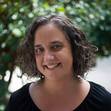A Lifetime of Living and Learning
Looking back over our years of unschooling, another big change I’ve seen is that my perspective as a parent has broadened beyond “childhood” to “life”. I no longer see childhood as focused on “learning everything you need to know to become an adult,” with my purpose being to “graduate” them into adulthood.
I think this shift started when I began pondering the purpose of curriculum, actually. From asking myself many questions about why children “should” learn certain things at certain ages. From thinking about the things I learned at school, the messages I was given about the things I was learning, and my own experience with what I have found truly useful as an adult.
Some of the thoughts that bubbled up along the way:
there isn’t a discrete set of knowledge and skills that everyone must have;
the discrete set of knowledge and skills that is helpful for people to interact comfortably with their own communities, varies by community (both cultural communities and those gathered around interests), and includes a subset of the typical school curriculum and much beyond it;
without the overlay of others’ expectations, children want to participate in the world around them as much as they are able, and the motivation to learn the knowledge and skills to do so grows organically alongside: to the level that they want to participate in the world around them, they want to do so successfully (as judged by themselves); which leads us to
any piece of knowledge or skill worth having is worth learning when that value is discovered—and bonus, that knowledge or skill is better understood, and often more easily learned, at that time i.e. when the learner has discovered a need for it, when they have discovered a missing piece in their puzzle of the world, and they want to fill it (great internal motivation); and
giving everyone a generalized and basic picture of the world sounds good when looking from the 10k foot level at society in general, but it doesn’t translate well down to the individual—the individual has their own unique life to live and much of that general information may not be relevant or useful to them.
It’s so easy to tell ourselves that there’s no real harm in insisting a child learn something that’s not useful to them. It can’t hurt, right? Well first off, they’ll probably forget it soon after, so it’s not really learned. Not to mention that their time is wasted and could be put to better use learning things that interests them and are useful to them today. But what they pick up long-term through the endless repetition of “learn this, you’ll need to know it some day,” can be harmful: they learn to not trust themselves, to not trust their own judgment. They learn that others know better than they do what’s important for them. They learn to be followers; they feel safer looking for someone else to tell them what they “should” know, to tell them what the “right” thing to do is, rather than thinking for themselves.
That seems like quite a bit of harm being done in the name of “some day.” Why can’t they learn “it”, whatever it is, when “some day” actually comes? If it ever comes (and if it doesn’t, then they never did encounter a use for it). They can. If you don’t ingrain in them the idea that they need to learn “everything” in childhood in order to “graduate” into adulthood, they will be open to learning new things whenever the interest or need arises, whatever their age. Keeping my frame of reference for learning firmly focused on “lifetime” rather than “childhood” has helped my children develop an approach to learning that will be useful to them both today and throughout their lifetime.
Over the years this perspective has been so helpful, time and again. I see the learning my young adult children are continuing to do. I see the learning I am continuing to do. Our learning is better understood and remembered when we’re actively pursuing the information or skill: when we’re interested. And we have a lifetime to learn things.
Childhood is not preparation for life, it’s an integral part of it. 



